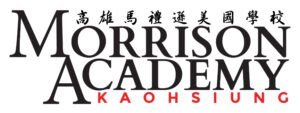The Value of Experience 經驗的價值所在
This week MAK has done something unprecedented in Morrison’s history: we have sent our entire secondary school on off-campus learning trips during the same week. While we have had multi-day Impact trips for each of our secondary grades for several years now, an Impact Week is a new kind of experience for our staff and students. But why expend this level of energy and resources on off-campus learning?
本週馬禮遜做了一些史無前例的事情:我們將整個中學部的校外學習旅行安排在同一週。雖然許多年來,我們為中學部的每個年級都安排了多天的「學習與影響力之旅」,但是對老師以及學生來說,「學習與影響力週」卻是個全新的體驗。我們為什麼要花費這麼多的精力與資源在校外學習上?
Opportunities for Character Growth 人格特質成長的機會
At the heart of our enthusiasm for learning at MAK is student character growth. Each of our trips has a theme intentionally designed to challenge each grade’s developmental needs. Our 6th graders go to Sun Moon Lake thinking about Crossing Over from elementary school to middle school, stepping out of their elementary school immaturities. Our sophomores, who are emerging as leaders in their courses, teams, and clubs, are practicing their theme of Leading with Courage this week as they navigate challenges presented to them by the land and waters of Xiao Liu Qiu.
在馬禮遜,熱衷學習的核心是學生人格特質的成長。每一次的旅程都為了挑戰每個年級學生的發展需要而特別地設計了一個主題。六年級生去日月潭,為的是要思考如何從小學部不成熟的狀態邁開步伐,跨越到中學。在課堂、團隊和社團中成為領導者的十年級生,要在這週透過小琉球呈現在他們眼前的環境,來面對挑戰並實踐「以勇氣領導」的主題。
Having our trips all in one week has allowed us to spend intentional time in advisory in the weeks prior to each trip examining these themes, being sure that students are getting the point. Additionally, our new Impact Week schedule has allowed our seniors, who have the theme of Leaving a Legacy, to play a major role as student leaders in our preparatory advisory sessions and as leaders on each trip for grades 6-11.
所有的「學習與影響之旅」都安排在同一週,這讓我們在數週以前,可以花更多時間給予學生指導與建議,以確保每位學生都能明白重點,這比確認每趟旅程的主題更加重要。另外,新的「學習與影響力週」行事曆讓主題是「留下影響」的十二年級生,在籌備會的學生領袖與六到十一年級的領隊中扮演主要的角色。
Additionally, our middle school schedule for the week includes two days prior to each trip during which each grade level can not only discuss their trip themes but also focus on the character traits needed for service and for working together. On Tuesday this week we spent a full day in middle school serving three schools in our area (Renwu Special Needs School, Jia Cheng Elementary School, and Meinong Elementary School) in effort to learn and apply the character traits needed for working together on each trip.
國中部本週的行程包含出發的前兩天,每個年級的學生不只可以討論他們旅程的主題,同時也聚焦在服務與工作時所需要的性格特徵上。本週二,我們利用一整天的時間服務了附近的三所學校(仁武特教學校、嘉誠國小與美濃國小),努力學習並應用在旅程中協同合作所需要的性格特質。

Integrating Theory and Practice 理論整合與應用
Another benefit of this type of learning is the fact that all our words have a chance to get transformed into action. We often tell our students to Do Hard Things, which is the theme of our 8th grade trip, but until they are presented with a real challenge and asked to really do it, these words often ring hollow in students’ ears. A number of years ago I took a group of students to a waterfall near Kenting and challenged them to jump from the rocks into a pool below. For many, it was a real challenge. Years later, one of those students, as a senior, described to me how that moment was foundational in his overcoming his fear of taking risks and trying new things.
這樣的學習類型的另一種好處是,所有的話語都有機會可以化為行動。我們常常告訴學生,去做些困難的事,這也是這次八年級生的旅行主題。但是在學生們面對真實的挑戰並被要求實際執行以前,這些話對學生來說都是空談。許多年以前,我帶著一群學生到墾丁附近的瀑布,並挑戰他們,要他們從岩石上往下跳。對許多人來說,這是個真正的挑戰。幾年後,他們升上了十二年級,其中一位學生對我描述,那一刻成為他冒險時,克服恐懼以及嘗試新事物的根基。
Our 9th grade trip to Green Island attempts to do the same on an academic level. When students can see real damage done by humans to a real ecosystem, a biology unit on ecosystems takes on a whole new reality. When our 11th graders discuss poverty in Bible class next semester, they will have had an intimate experience of what poverty looks like after their trip to Cambodia this week. These types of trips can make learning real.
九年級生去綠島,他們試著要在那裡實際操作一些在課堂上學到的事情。當學生看到人類對於生態系統所造成的傷害時,他們將會看到在這個生態系統中的某個生物體所呈現出一個迥然不同的實際狀況;下個學習的聖經課中,十一年級生會討論有關貧窮的議題。在他們完成這週的柬埔寨之旅後,他們將會對於貧窮是什麼有個很深的體會。這些旅程都能讓學習真實化。

A Safe Place to Take Risks 在安全之地冒險
Off-campus learning environments are not as controlled as a typical school environment. There quite simply are more variables. On our trips our students are faced with sea sickness, bugs, new sleeping arrangements, and often food that is not exactly delicious. Parents are also faced with the prospect of entrusting their child to the school for a few days, and this can be a difficult thing! But we must remember the importance of risk-taking to learning. Often the times we learn the most and gain the most independence and confidence are the times when we feel uncomfortable or when we are unsure. Conversely, when we are shielded from all discomfort, we become dependent on others and often lack personal confidence and initiative.
校外的學習環境並不像典型的學校環境般地易於掌控。越單純的地方,變數越多。旅途中,學生們要面對暈船、蟲子、新的住宿安排以及常常吃到不怎麼美味的食物這些問題。家長們也同樣要面對在未來幾天中,將孩子託付給學校的景況,而這也是件不容易的事情。但是我們必須牢記冒險對於學習的重要性。當我們處於不舒適或是不確定的情況中時,往往是我們學到最多並獲得最多的獨立性與信心的時候。反之,若我們將所有的不舒適屏除在外,我們會在其他事物上變得依賴並時常缺乏自信心與主動性。
Our staff has gone to great lengths to plan safe trips for each of our students, conducting discussions of potential risks, receiving first aid instructions and supplies, and visiting locations beforehand. The beauty of our trips is that while students might sense risk-taking, “risks” are being taken in a safe environment under the supervision of caring staff.
老師們竭盡全力地為每個學生計畫安全的旅行,討論潛藏的風險,接受急救教導與補給品,以及行前場地勘察。這些旅程的美麗之處在於,當學生可能感到危機感時,他們是在細心的老師的監督之下,在一個安全的環境「冒險」。
Bonds for a Lifetime; Moments of Inspiration 一生的關鍵; 激勵的時刻
Another benefit to off-campus trips is the memories that they create. I still vividly remember the experience of eating rice with my hands at a restaurant in Nepal and the morning I spent on a boat with a friend on the quiet, mirror-like lake adjacent to Pokhara. I remember being amazed by the resilience of a young man I met in Indonesia on a trip with the juniors several years ago. I remember a moment on Orchid Island when I couldn’t sleep and watched the sunrise out over a silent Pacific Ocean, marveling at God’s goodness. We all carry memories like these, and often they linger longest when they occur within a unique experience. These types of trips give students moments worth writing about, conversations worth meditating on, and experiences worth doing something about.
校外旅行的零一個優點是他們創造了回憶。我至今仍深深地記得我在尼泊爾(Nepal)的一間餐廳裡用手抓著飯吃; 某個早晨,我和一個朋友在鄰近博卡拉[1]的一座波光粼粼的湖泊上,坐著船度過安靜的時光; 許多年前,和十一年級生在印尼的旅途中,我因為一位年輕人生命的韌性而感到驚奇; 在蘭嶼時,因為失眠而看到太陽從無聲的太平洋升起的那一瞬間,讚嘆上帝的良善。我們都擁有類似這樣的回憶,當它們伴隨著獨一無二的經驗發生時,就會時時縈繞在心頭。這些旅程給予學生值得書寫的回憶,給予學生值得回想的對話,給予學生值得做些與這些事情有關的經驗。
[1] Pokhara位於尼泊爾西部發展區的甘達基專區。音譯為博卡拉或是波卡拉,意譯為湖城。
Lifelong Learning 終身且全面的學習
Finally, our hope is that these experiences produce a sense that traditional academic skills, while they are certainly vital and necessary, are not the only source of learning. Our hope at Morrison is that our students are lifelong learners. When we start seeing questions to be asked and answered in the people around us, in the environment we live in, in the opportunities we are presented with, and in the daily problems we experience, that is when we begin to be true learners.
最後,我們希望這些經驗能對學生產生一種感覺,就是雖然正規的學業技巧是至關重要且需要的,但並不是他們學習的唯一來源。在馬禮遜,我們希望每位學生都是終身的學習者。當我們開始看看我們身邊的人,在我們生活的環境中,在我們眼前出現的機會中,以及在我們經歷過的日常問題中發問以及回答問題時,從那一刻起,我們就開始成為真正的學習者。


